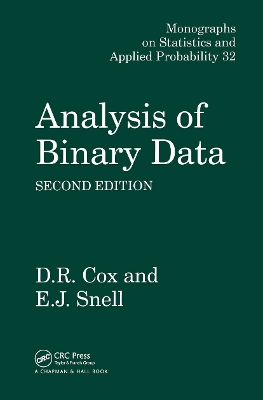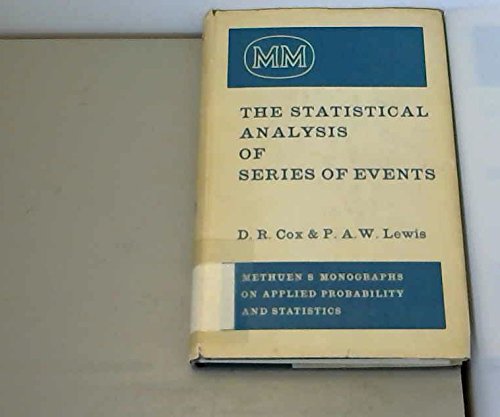Monographs on Applied Probability & Statistics
3 total works
The first edition of this book (1970) set out a systematic basis for the analysis of binary data and in particular for the study of how the probability of 'success' depends on explanatory variables. The first edition has been widely used and the general level and style have been preserved in the second edition, which contains a substantial amount of new material. This amplifies matters dealt with only cryptically in the first edition and includes many more recent developments. In addition the whole material has been reorganized, in particular to put more emphasis on m.aximum likelihood methods.
There are nearly 60 further results and exercises. The main points are illustrated by practical examples, many of them not in the first edition, and some general essential background material is set out in new Appendices.


